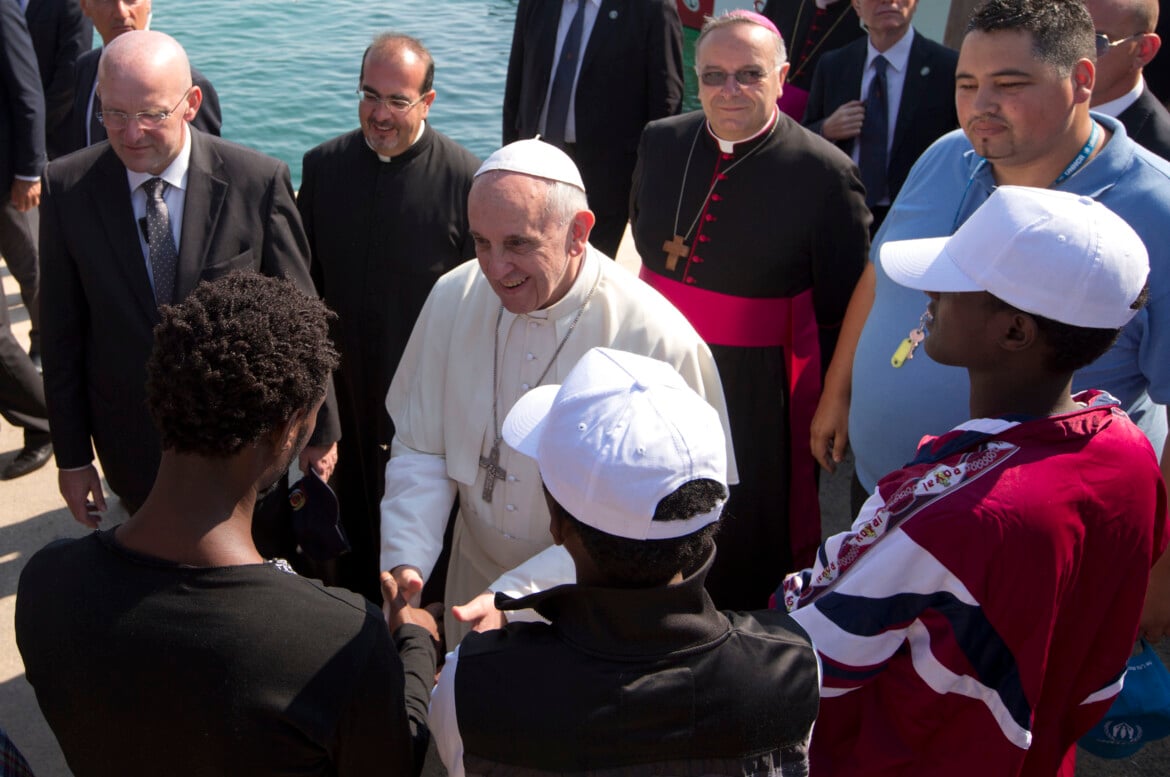Interview
Archbishop of Ferrara: Francis rejected ‘a political culture that glorified walls’
‘If we look at the actions of various governments, from the U.S. to Europe to Australia, we see policies moving in the opposite direction to the Pope’s words. … However, some words plant deep seeds whose fruits become evident over time.’

We spoke with Monsignor Gian Carlo Perego, Archbishop of Ferrara and president of the Migrantes Foundation of the Italian Bishops’ Conference.
From his first trip to Lampedusa to the final days of his pontificate, how significant has the issue of migrants been in Pope Francis's teaching?
It has been a kind of leitmotif throughout his entire pontificate, right up to his last Urbi et Orbi message on Easter Sunday. Against a political culture that glorified walls and pushbacks, often disregarding human dignity, Francis, in his 2013 Apostolic Exhortation Evangelii Gaudium – almost a programmatic text issued to the Italian Church during the 2015 ecclesial convention in Florence – reminded us that “Every stranger who knocks at our door is an opportunity for an encounter with Jesus Christ.” In his 2020 encyclical Fratelli Tutti, he described migrants as a “blessing.” He also had the courage to say in his 2014 speech to the European Parliament that “we cannot allow the Mediterranean to become a vast cemetery,” which sadly has happened over these past ten years, with over 20,000 deaths – a fact that calls everyone's conscience to a reckoning.
What is his legacy on this issue that the Church must now uphold?
First and foremost, reminding us of the passage from the Sermon on the Mount: “I was a stranger and you welcomed me,” which inspired Pope Francis’s appeal to all parishes, religious institutions, and monasteries to welcome at least one family of migrants or refugees. Then, his words during his first apostolic journey to Lampedusa in 2013, which echoed God's question to Cain – ”Where is your brother?” – challenging each of us to welcome migrants as brothers and sisters. Then his two visits to Lesbos, in 2016 and again in 2021, where, faced with those suffering faces, the people detained in refugee centers, he spoke of a “shipwreck of civilization.” Moreover, there are four crucial verbs he repeatedly emphasizes, which challenge our approach and models of hospitality: welcome, protect, promote, and integrate. These clearly outline a path from initial welcome to full citizenship – a path that must still be built.
How has his message influenced Italian and global public opinion?
Certainly, it has stirred the conscience of morally upright individuals, challenging governments and economic and social policies. Consider the ten-point letter he addressed to U.S. bishops in February, after the Trump administration cut resources for refugee assistance, in which Pope Francis said that “an authentic rule of law is verified precisely in the dignified treatment that all people deserve, especially the poorest and most marginalized.” Unfortunately, public opinion remains sharply divided, in Italy as well, between those who want an open or a closed-off approach towards migrants, partly influenced by misleading narratives about migration. It is essential to continue reiterating Pope Francis’s teachings on migrants, as he has addressed the migration phenomenon with truthfulness, prophetic spirit and realism. The Jubilee this year is an opportunity to reaffirm and sustain this message.
Has this message received the attention due from political leaders? Or has it been ignored or opposed?
If we look at the actions of various governments, from the U.S. to Europe to Australia, we see policies moving in the opposite direction to the Pope’s words, treated with open criticism or met with indifferent silence. However, some words plant deep seeds whose fruits become evident over time.
Among the critics of the Pope’s appeals to welcome migrants, some have invoked the notion of a risk that Europe will be de-Christianized due to the arrival of many Muslim immigrants. What is your view on that?
This represents a misuse of religion, often by people who themselves do not practice the faith, and does not reflect reality. Europe's de-Christianization has other causes. The encounter between Christianity and Islam during Pope Francis’s pontificate has fostered new dialogue, exemplified by the Abu Dhabi declaration, and has encouraged local churches to collaborate on common issues like peace, justice, environmental stewardship and empowering women.
What kind of Catholic advocates for building walls against people fleeing war and hunger?
Pope Francis has repeatedly stated that such individuals must re-examine their faith in the light of the Gospel and take a leap towards greater humanity in their moral choices.
Originally published at https://ilmanifesto.it/il-testamento-di-francesco-contro-muri-e-respingimenti on 2025-04-22
